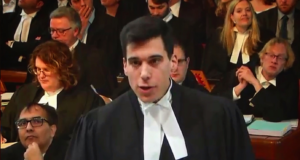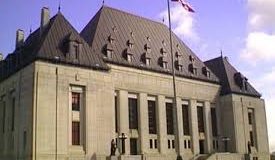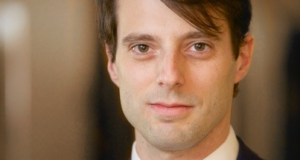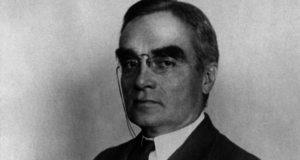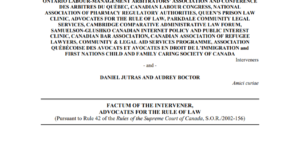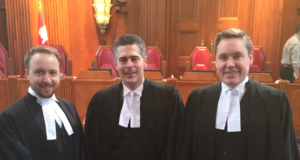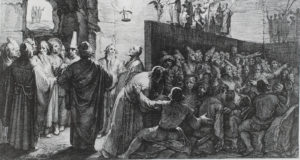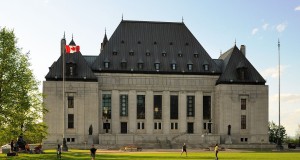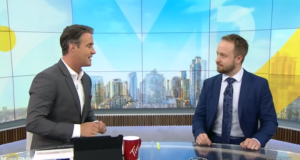Earlier this month, Advocates for the Rule of Law appeared as an intervenor in the Bell/NFL and Vavilov appeals at the Supreme Court. Prior to the hearing, the Court advised the parties that these appeals would present an opportunity to reconsider the Court’s seminal decision in Dunsmuir v. New Brunswick, released a decade ago. Consequently, various organizations, including ARL, moved to intervene in the case. ...
Read More »Yearly Archives: 2018
The Administrative Law “Trilogy”: The Stare Decisis Trap
This week, the Supreme Court of Canada finally heard the consolidated appeals in Bell/NFL and Vavilov. ARL, expertly represented by Adam Goldenberg, put forward our submissions on the matter, which focus on a return to the basis of the law of judicial review: its statutory character. During the hearings, one particular line of questioning posed a problem for this argument, ...
Read More »The “Cultural Appropriation” Criticism: Lousy Analogy and Censorship in Disguise
On October 23, alongside my colleagues Konstantia Koutouki of University of Montreal, as well as Safie Diallo and Alexandra Lorange, I partook in a discussion initiated by the McGill Runnymede Society, on the criticism of cultural appropriation in the arts and literature. In preparation for this discussion, I discovered more problems with the notion of cultural appropriation than time would ...
Read More »Understanding Unconstitutionality
The following is an excerpt from Mr. Peltomaa’s recently published text, Understanding Unconstitutionality: How a Country Lost its Way. Courts are often said to “strike down” laws that conflict with the Constitution. An image is evoked of black-robed judges hurling bolts of lightning in Zeus-like manner, thereby destroying the legal efficacy of unconstitutional laws and expunging them from the ...
Read More »Protecting Rights: A Common Responsibility
“Are great public problems best addressed through institutions designed to apply the explicit technical knowledge of experts or by those designed to channel the implicit social knowledge of the community?”[1] Since the enactment of the Charter of Rights and Freedoms, Canada has experienced a remarkable shift from the latter forum to the former—namely, from legislature to courtroom.[2] Not only has ...
Read More »ARL’s Factum in the Vavilov and Bell/NFL Appeals
For those interested in reading ARL’s factum in the standard of review appeals, it can be read here. Thank you again to our excellent counsel at McCarthy’s, especially Adam Goldenberg, for putting together such a superb factum.
Read More »Supreme Court Rejects a Legislative Duty to Consult in ARL’s First Intervention
The Supreme Court of Canada (SCC) has ruled that there is no duty to consult Indigenous groups at any stage of the law-making process. This is an important ruling as the recognition of a justiciable duty to consult in the legislative process would have had very significant implications for the ability of federal, provincial, and territorial governments to pass laws ...
Read More »Constitutionalism from the Cave
The imbroglio with the Ontario legislature’s enactment of Bill 5 to restructure the Toronto City Council a couple of months before an upcoming election, the Superior Court’s declaration of that legislation unconstitutional, the threatened invocation of the “notwithstanding clause” to override that declaration, and the Court of Appeal’s restoration of what little sanity could still be restored by reversing the Superior ...
Read More »Supreme Court Rejects Duty to Consult in Legislative Process
The Supreme Court of Canada released its decision today in Mikisew Cree First Nation v. Canada (Governor General in Council). The decision significantly deals with whether there is a duty on the government to consult with Aboriginal groups prior to introducing legislation. The Court held (7-2) that no such duty exists. However, 3 of the 7 justices were somewhat equivocal in their ...
Read More »Discussing the Notwithstanding Clause
I had the real privilege today of appearing on Your Morning on CTV to chat about the notwithstanding clause with host Ben Mulroney. In particular, we discussed the threat of premier-designate, François Legault to invoke s.33 of the Charter preemptively in legislation that would ban public servants and officials from wearing religious symbols. The full interview can be accessed here. ...
Read More » Advocates for the Rule of Law
Advocates for the Rule of Law
